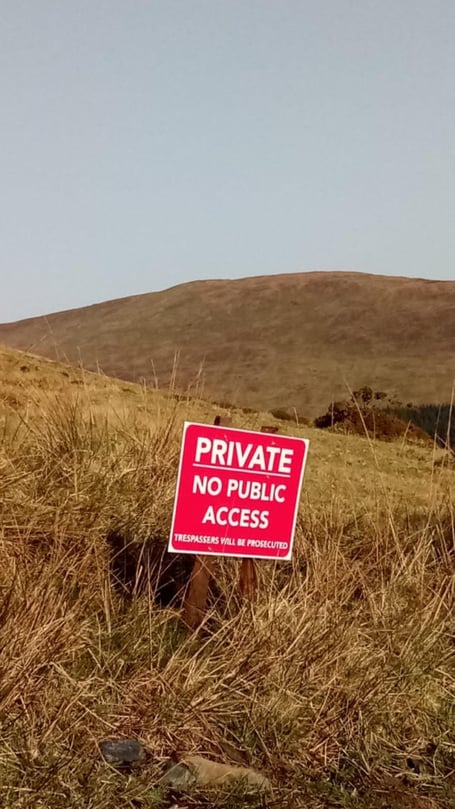Hillwalkers are up in arms over the prohibition of public access to one of the island’s most scenic peaks.
Red signs forbidding entry have appeared around the slopes of Carraghan, which rises 1,600 feet above Injebreck reservoir in West Baldwin.
The land is privately owned but hikers have enjoyed unhindered access to the hill for decades, and paths to the summit are well established.
Walkers have protested about the closure to the Department of Infrastructure, which is responsible for footpaths and rights of way.
Unlike the UK, the Isle of Man has no ’Right to Roam’ legislation ensuring members of the public can walk on uplands in private ownership.
One angry rambler told the Examiner: ’I have been walking in the Manx hills for 50 years and have never seen anything like this. Closing off an entire mountain is quite unprecedented.
’It really highlights the fact that the Isle of Man has no Right to Roam law, so people here do not have same legal right of access to open countryside as they do in England, Scotland and Wales.
’This is about the rights of the Manx public and recognising that our beautiful hills are a national asset that should be accessible to everyone.
’Modernising the law will be an issue in the general election this year and candidates will be asked if they think the Manx hills should be open or closed.
’The importance of the outdoors for physical and mental health has been underlined during the pandemic. Walking in the countryside is also an attraction for potential tourists and new residents, but less so if swathes of it are closed off.’
Much of the island’s uplands is owned by government and zoned as areas of public ramblage. But there are still significant sections in private ownership where access is dependent on the landowner’s permission.
In England and Wales the Countryside and Rights of Way Act introduced in 2000 guarantees non-motorised recreational access to open countryside such as mountains, moors, heaths and downs, whether it is publicly or privately owned.
In Scotland the public’s freedom to roam is more extensive. The Land Reform (Scotland) Act of 2003 opened up nearly all of the Scottish countryside to non-vehicular access.


-(2).jpeg?width=209&height=140&crop=209:145,smart&quality=75)


Comments
This article has no comments yet. Be the first to leave a comment.